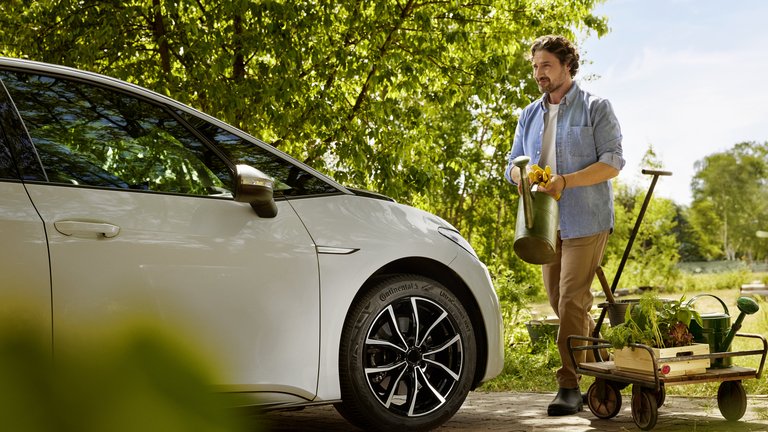Mobility Study 2024
Conducted for the first time in 2011, the 2024 Continental Mobility Study is its eighth edition.
For the Mobility Study 2024, Continental and market research company infas surveyed around 5,000 people over the age of 18 in Germany, France, the USA, Japan and China in August 2024 about their mobility habits and their opinions on various mobility topics. In each country, the respective sample is representative of the population; for China, it is representative of the urban population. The aim of the study is to provide an internationally comparable overview of people’s attitudes toward current and future mobility trends and their personal usage habits.
The topics covered by the 2024 Mobility Study include general mobility needs, the significance of the car for everyday mobility, automated driving, user experience, urban mobility, the affordability of mobility, expectations regarding its sustainability and attitudes toward government regulation of the mobility sector. The study also provides important insights into the significance of technological developments such as artificial intelligence in cars and expectations regarding the design of future mobility.
Cars Are a Status Symbol for Many Young People
The majority (54 percent) of younger drivers in Germany (up to the age of 34) see cars as a status symbol. This is a key finding of the representative mobility study conducted in August 2024 by market research institute infas on behalf of Continental in Germany, China, France, Japan and the USA. In Germany, 1,000 people aged 18 and over were surveyed about their mobility needs. According to a study commissioned by HORIZONT in 2017, for example, only 25 percent of younger respondents viewed cars as a status symbol. Overall, 84 percent of car owners in Germany, regardless of age, believe that it is important to own a car. For almost 90 percent, having a car is essential for shopping and running other errands.
Click here for the press release.
The Study
Central topics of the Continental Mobility Study 2024:
- Car ownership continues to be highly relevant in all countries. Alternatives are particularly attractive to younger people. Overall, the car is equally important for people of all ages.
- Younger people are more aware of their car use within the mobility mix and tend to see it as one of several mobility options.
- Cars are seen as a prestige item, especially among younger people, who have high expectations in terms of technology.
- Many people are worried that driving could become too expensive for them.
- Increasing energy prices are a major reason for this concern, as well as regulatory interventions that could make driving more expensive.
- Many people believe they cannot afford an electric car.
- Sustainability matters to many respondents. They have two clear expectations of their governments: that they create a framework for sustainable personal mobility,
but at the same time keep it affordable. - Regulatory interventions in the interests of sustainability are accepted, provided they do not lead to price increases.
- Younger respondents are less price-sensitive: they are prepared to pay a premium for sustainable products. They are more likely to also accept regulatory interventions that make driving more expensive.
- Electric mobility does not play a role for most respondents. With the exception of China, no country in the survey has a significant share of electric cars.
- Younger people are more likely to consider switching to an electric car than older people.
- Hybrid vehicles already play a major role in Japan. These could also become relevant as a bridging technology in the other countries surveyed: many people who refuse to buy a fully electric car see a hybrid as an alternative.
- Assistance systems are becoming increasingly common in cars, as is their acceptance and desirability. The desire to use assistance systems has grown internationally in recent years. The latest technologies are particularly important in China.
- Many people attach great importance to the usability of in-car technologies. There is a clear desire for large displays and intuitive operation.
- In Germany, around half of those surveyed have a positive view of autonomous driving. This is much more widespread in Asia, especially in China.
- Many people would like to have AI assistants in their cars. This desire is particularly pronounced among younger people and respondents who tend to travel long distances by car.
- For the majority of respondents, the car is still above all a safe means of transportation. However, young people in particular also see it as a place of retreat as autonomous driving progresses.
Download the results as a PDF here: Continental Mobility Study 2024 - pdf (4.03MB)

Please find here more Mobility Studies of Continental.










